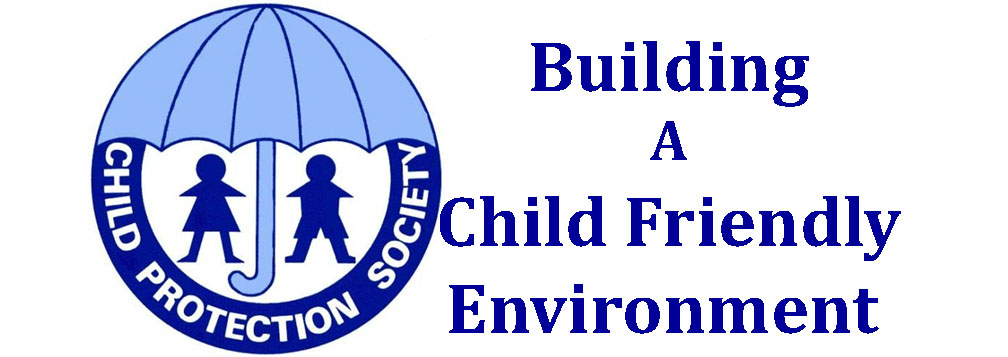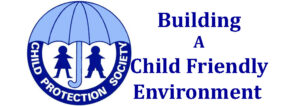Programs
Child Protection

Identification, Family Tracing and Reunification for unaccompanied and separated children
Children may be separated from their families in various ways. Child Protection Society supports these children in their time of need through the identification, profiling, family tracing and reunification of children separated from their families. This work is done in conjunction with the Department of Social Development of the Ministry of Public Service Labour and Social Welfare. Once reunified, children are followed up to ensure that the family has integrated well thus preventing secondary family separation
Supporting survivors of sexual gender-based violence
Child Protection Society is working with other partners in and around Zimbabwe implementing interventions that support survivors of sexual gender-based violence (SGBV). The organisation has implemented projects supporting this key group through DREAMS, Spotlight, and the Child Protection Fund, amongst others. CPS has supported young mothers and survivors of child marriage with the Youth Empowerment Programs.
Recognising that perpetrators of SGBV survivors are at times in the home, CPS has also worked with the DSD to provide places of safety for survivors whilst providing family tracing and reunification with extended family. Whilst here, survivors are provided with psychosocial support, legal assistance, medical support, and access to education either directly or through referral in the national case management system.
Tongogara Refugee Camp
Zimbabwe, like many other countries, has experienced an influx of refugees from various parts of Africa. As a result, the Tongogara Refugee Camp was established to identify and support undocumented individuals and families who are in transit for various reasons. Child Protection Society has worked in the Tongogara Refugee Camp to protect the interests of children in the camp through by establishing child protection mechanisms for the identification, referral, and case management of child protection cases.
Establishment of child protection reporting and referral mechanisms
Child Protection Society supports the establishment of reporting mechanisms in schools, alternative care, social protection platforms and in community. This is done through the sensitisation and education of children, caregivers, and other stakeholders in child protection rights and responsibilities, mechanisms for anonymous reporting and follow up of cases identified until closure. Cases may be reported anonymously on the CPS WhatsApp platform, the CPS website and directly to the director of the organisation.

Child rights education
Children are not able to claim their rights if they do not understand what their rights are. To this end, CPS has reached over 30,000 children with Child Rights Education (CRE) in schools, in community and in alternative care. Schools and communities are provided with updated service directories of Community Childcare Workers (CCWs) in their community where they can report cases. CCWs in turn handle the cases through the National Case Management System to ensure that children receive the help they need.
Child Protection Committees
Child Protection Society actively participates in district level child protection committees (CPCs) and has established adult led CPCs where they had become inactive. Further, the organisation has led the establishment of Child-Led CPCs in schools. We have also facilitated the active participation and inclusion of these child led CPCs in higher level adult led CPCs to ensure that they are included on the agenda and their issues are heard.

Child Protection in Emergency (CPiE)
Hazards, in the context of child protection, are events that pose danger or risk to children. These vary from drought to catastrophic climatic events such as flooding and cyclones, and disease outbreaks. In times such as these response teams are usually focused on life saving interventions and whilst these are critical, child protection actors such as Child Protection Society intervene to ensure that children are protected in times of emergency. As such, Child Protection Society has worked with response teams both in government and civil society to support unaccompanied children who have been separated from their families in times of emergencies with family tracing and reunification as well as placement in alternative care arrangements. The organisation has also supported the setup of child protection surveillance systems at district level, as well as supported placements of social workers at service delivery sites in emergency for short- and long-term recovery periods
COVID-19
Child Protection Society has supported residential care institutions to establish protocols for responding to COVID-19 cases for children in care. The organisation has also supported quarantine centres to establish child protection systems and reporting mechanisms as well as ensure that children are safe whilst in quarantine. Further, CPS has supported family tracing and reunification of unaccompanied and separated children, children on the streets as well as children on the move, during the pandemic. The organisation has also mainstreamed COVID-19 infection, prevention and control, as well as response to COVID-19 and other hazards in its regular programming to improve response systems in future emergencies. Further, as an organisation, CPS has adopted virtual methods to working in implementing and coordinating projects, data management, and performance management.
Establishment of the National Residential Care Standards
Child Protection Society developed the National Residential Care Standards guiding residential care institutions on quality standards for the care of children placed in their centres. The standards have made facilities accountable to ensure that children are safe, have the best care possible and are provided with a care arrangement closest to that of a family. These standards were later adopted by the Department of Social Development and residential institutions have since been monitored and measured against these standards.
Establishment of the Foster Care Handbook
Child Protection Society has worked over the years with the Department of Social Development of the Ministry of Public Service Labour and Social Welfare to establish effective
foster care systems across the country. To this end, CPS developed the foster care handbook, later adopted by Government, which guides foster parents on their roles and responsibilities as they care for children in need of places of safety.
In line with this, CPS has identified and trained over 3,000 foster parents nationwide who have provided places of safety for unaccompanied and separated children in regular programming and in emergencies, as well as survivors of SGBV.
